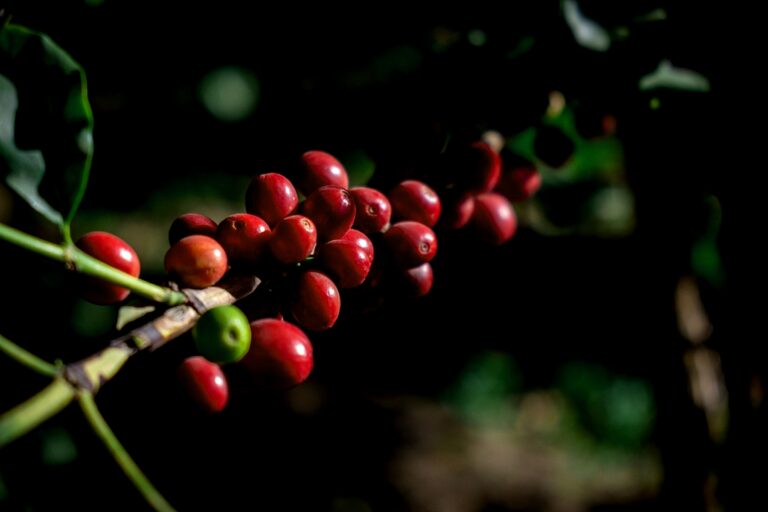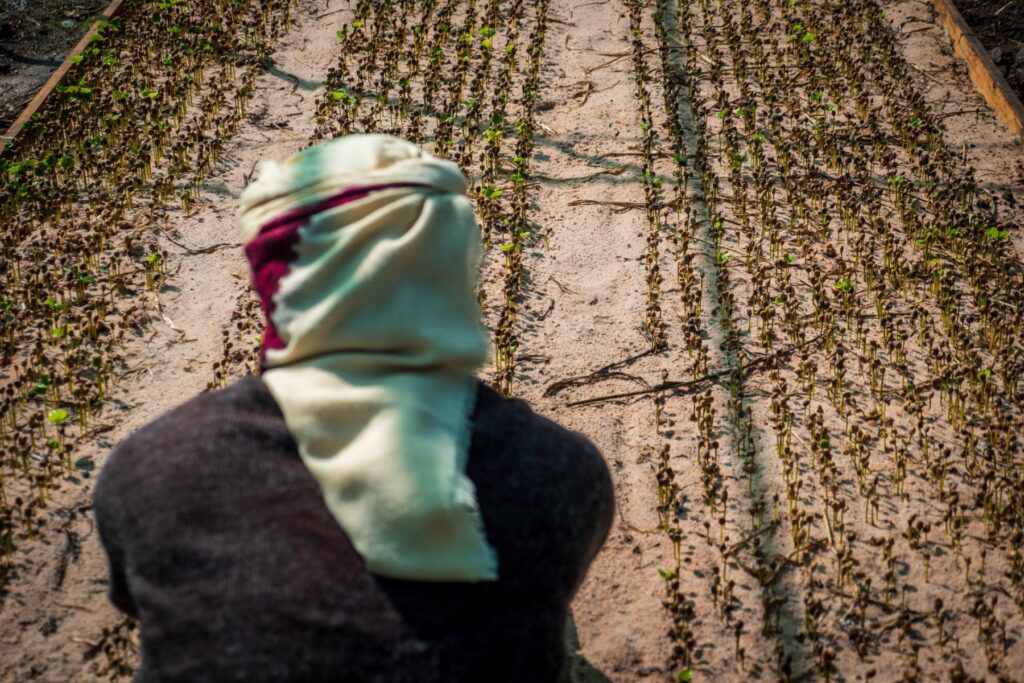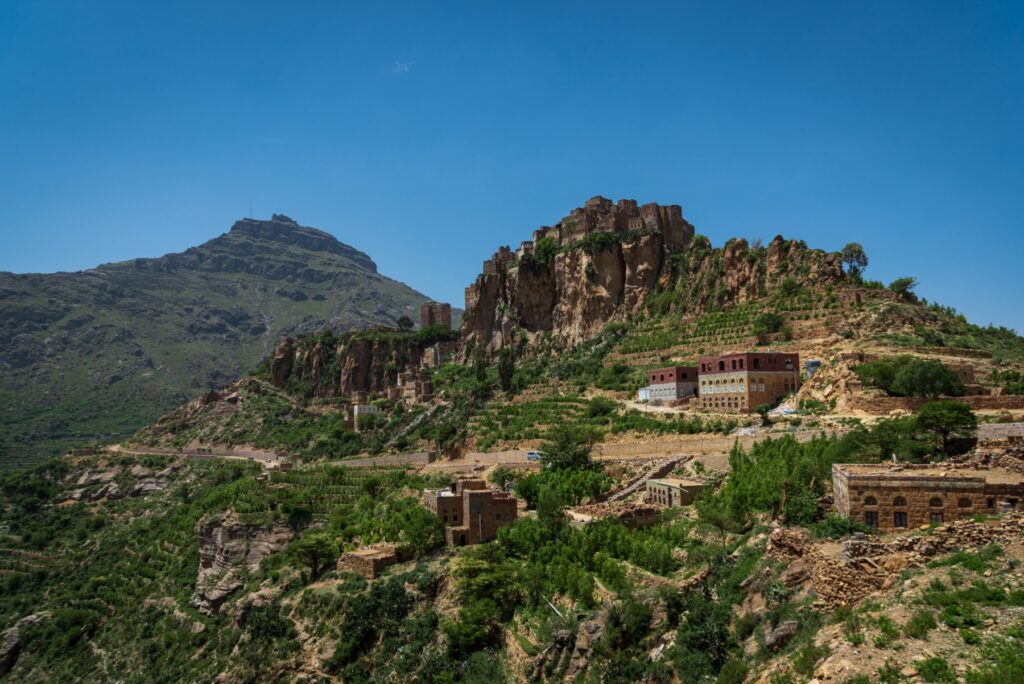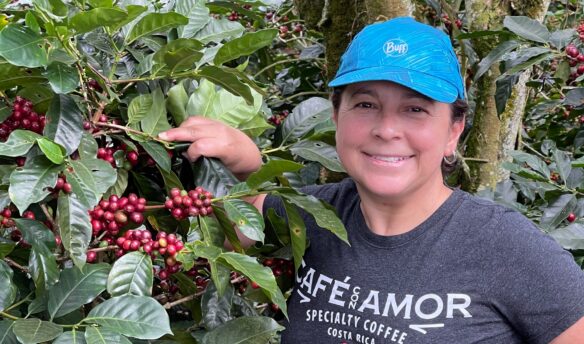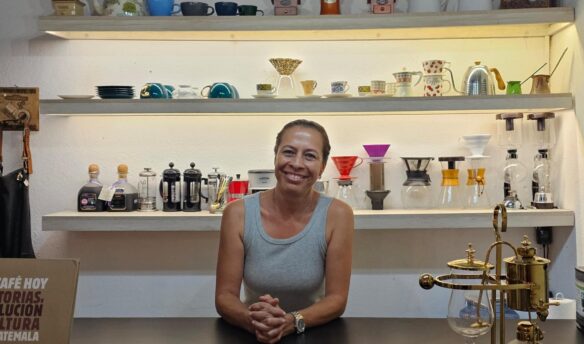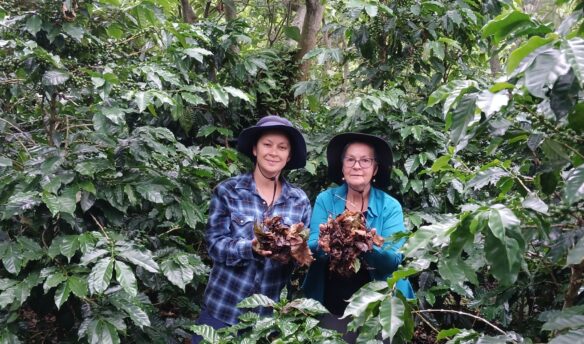A new study published in Agronomy is changing how we understand the landscape of Yemeni coffee. For generations, farmers in Yemen have relied on colloquial names to distinguish coffee tree varieties, but these names often had no link to a coffee’s genetic identity.
In partnership with the Lavazza Foundation, RD2 Vision, and the Qima Foundation, Qima Coffee undertook a massive survey to genotype coffee trees in Yemen, effectively mapping the gap between colloquial names and genetic variations of the Coffea genus in Yemen. The result is upheaval in how farmers talk about Yemeni coffee—and will impact which coffee trees farmers choose to plant in the future.
The Discovery of a Problem
This new Agronomy study comes on the heels of the 2021 discovery of a new coffee variety: Yemenia. Tribes of Mokha, a specialty coffee roasting company that promotes Yemeni coffee, called Yemenia, “the coffee discovery of the century” because it’s a significant new genetic group of coffees to study. This variety could introduce new possibilities for coffee tree resilience, a hugely important issue facing farmers today. Qima Coffee discovered Yemenia as part of a larger study mapping Yemeni coffee genetics.
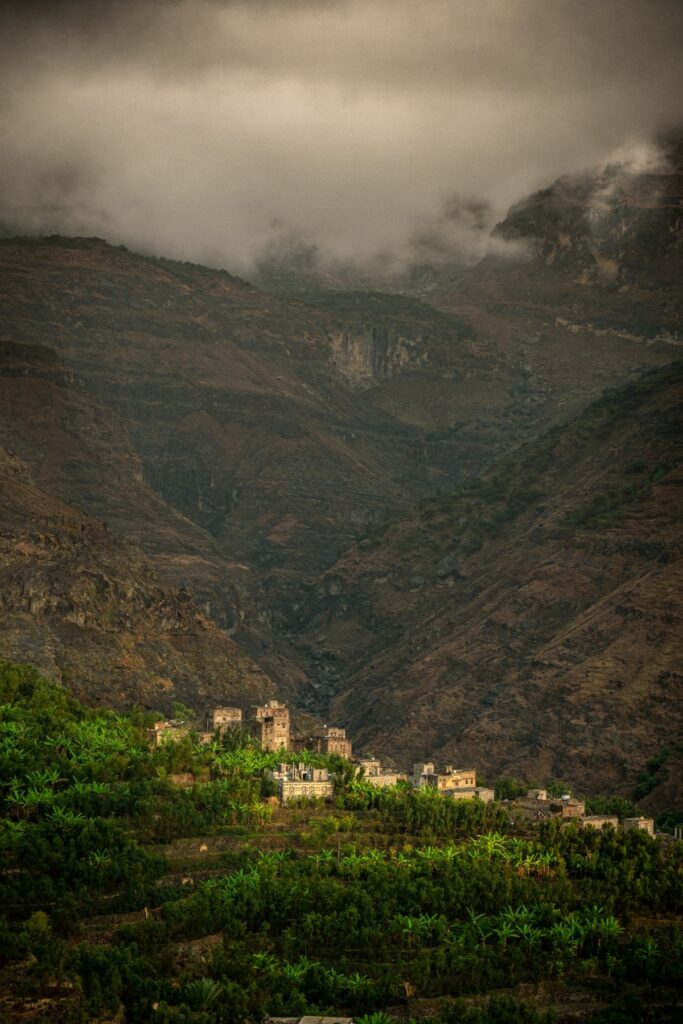
The study focused on nearly 150 farms spread across Yemen’s coffee-growing regions to assess whether local names were linked to genetic varieties. Farmers shared the terms they used for the trees, and then trees underwent genotyping to determine if there was a link between genetics and traditional names.
Once the full results of that study were in, researchers found an issue: Yemeni coffee farmers are often misinformed about what they are planting due to reliance on colloquial names stemming from a prior lack of confirmed genetic identification of coffee trees. Many farmers assume these names represent different varieties, implying that the plants would have certain qualities.
However, the study found “no correlation” between colloquially-used names and actual genetic varieties, meaning that farmers don’t know what they’re buying. They may not be investing in suitable trees for their land, leading to problems years later when the plants are mature enough for fruit.
Faris Sheibani, the founder of Qima, says that deciding which coffee trees to plant is “the most important” decision a farmer will make on their land. “The variety that a farmer will plant massively impacts the farm performance,” he says. “It dictates quality, yield, productivity, pest and disease resistance, and climatic resilience.” Moreover, coffee trees can take up to seven years to produce fruit and live for up to 100 years, so if a mistake is made at this stage, it can impact generations of farmers.
To distinguish between each type, farmers would assess the phenotype of the tree, i.e., the physical characteristics. While this might work between very different plants—think using appearance to tell the difference between a coffee tree and an apple tree—relying on physical characteristics of varieties within the same species of plant can be trickier. Physical characteristics can be affected by other factors, including environment, nutrition, climate, and more, making them an unreliable indicator of climate tolerance, yield, and more.
Impacts After Harvest
The colloquial Yemeni names for coffee trees include Udaini, Jaadi, Tufahi, and Dawairi. Though farmers used to believe that each name was connected to a specific variety, they weren’t. Researchers found “significant differences in the names used from one region to another” to represent the same plant, showing that the names don’t represent scientific fact. In practice, this means that some of these traditional names end up on retail bags in markets abroad, with the same name applied to coffees that are very different in appearance and taste.
“It has become commonplace to see Udaini or Tufahi (or other names) being presented as varieties on Yemeni coffee products, with serious implications,” says Shebani. “There’s a serious element of potential misleading advertising and marketing. We know consumers pay premiums for exotic coffee varieties, and if consumers are paying premiums for ‘varieties’ that turn out not to even be varieties, we risk losing significant consumer confidence in Yemeni coffees.” For an already depressed market, losing consumer confidence could be disastrous.
Yemen has historically been considered an important location for the domestication of coffee plants. Much of the commercialization of coffee as a global crop began in Yemen, but ironically proper scientific genotyping of Yemeni coffee has lagged behind the rest of the world. Clarifying the gaps between colloquial names and scientific varieties became a priority for Qima Coffee as part of their larger mission to improve farmer livelihoods.
Naming the Future of Yemeni Coffee
Now that this problem has been identified, Sheibani believes the next step is “developing a robust seed sector” and devising a national network of nurseries with genetically-verified seeds and plants. This kind of network would be helpful to many coffee-growing regions. While not every country faces the same problem as Yemen, other countries struggle to correctly identify coffee varieties. In 2020, a study published in the Journal of AOAC International found that 60% of coffee called “Gesha” was not actually of the Gesha variety.
Accurate information about the type of coffee seeds a farmer chooses is essential in improving the coffee-growing industry in Yemen. “This study represents a fundamental building block to establishing an effective seed sector for Yemen’s coffee industry,” says Dr. Christophe Montagnon, CEO of RD2 Vision, a coffee research and development partner on the study. “If coffee farmers rely on local names for their planting decisions, they are at significant risk of making planting decisions that do not fulfill their needs—with potentially serious long-term financial implications for farm performance and household livelihoods.”
Building genetically verified nurseries is one method of ensuring climatic stability in the coffee sector. Genetic verification ensures a seedling’s qualities are clear before planting it on a farm. This clarity empowers farmers to make better decisions about growing for their particular region, improving their livelihoods in the long term. Together, the Qima Foundation and Lavazza Foundation have already constructed the first genetically verified nursery in Yemen, which can produce 150,000 Coffea seedlings each year. As part of the Qima Foundation’s work, seedlings will be distributed to farmers at cost to help them save money while building more sustainable farms.
In the new nursery, recognized scientific names are being used for each variety. But the traditional names aren’t being dismissed or forgotten. Sheibani mentioned, “There’s a lot of cultural heritage and pride attached to the various names.” So it will be left for local Yemeni farmers to decide how they want to adapt the names locally. Hopefully, with an increased understanding of the genetic landscape of Yemeni coffee will come improved livelihoods for Yemeni farmers.
Valorie Clark is a writer and historian based in Los Angeles. She often writes about coffee, travel, social history, and the intersection of all three. When she’s not writing, she’s probably bending to her cat’s every whim. Photos courtesy of Qima Coffee.



